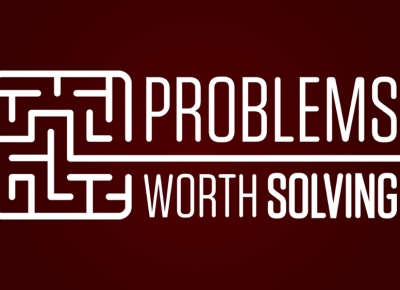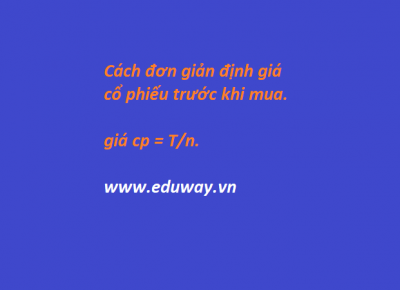Tin tức
MBA for no first degree
Viết bởi: Financial Time, 25 06 2020
Some of the most popular MBA courses will accept students who don’t have a first degree. That comes as a surprise to many people as information on these opportunities can be hard to find. Most institutions, it seems, are not keen to publicise flexible admissions arrangements.
Dan Bauer, owner of the admissions consultancy MBA Exchange, says the reticence is because schools are worried about being inundated with applicants who do not have a degree. This reflects a solid reputational worry, as students who arrive without previous qualifications could lower schools’ overall scores in some business school rankings (this would not be the case in the FT’s rankings). Nevertheless, Mr Bauer has helped clients without degrees to gain places at several leading MBA providers, including Wharton, London Business School, Columbia Business School and the University of Chicago’s Booth School of Business.
While many schools stay quiet publicly, there are strong internal cultural reasons for accepting a few non-graduate students, even for institutions that are very oversubscribed. Diversity of background and experiencehelps enrich the classroom discussions that are a core part of the MBA teaching method.
The University of Edinburgh Business School is one of the schools that is open about its entrance procedures. It accepts candidates without a bachelors degree provided they pass a verbal and numerical reasoning test as well as the standardised GMAT business school entrance exam and complete an essay assignment.
Entrepreneurs, women re-entering the workforce after a career break, and people in public service are among those who have come to Edinburgh this way, according to Copil Yáñez, executive relationship manager at the school. “These are great candidates,” he says.
This willingness to widen the applicant pool also reflects a shift in power from school to student, according to Lawrence Linker, founder and chief executive of admissions agency MBA Link. Applications for MBA courses are down for a second successive year globally and in a majority of US schools they have fallen for five successive years, forcing even the most sought after MBA programmes to cast their nets more widely. “The general tone from the top admissions teams to applicants without previous degrees has changed tremendously,” Mr Linker says.
One of the biggest challenges for those coming to business school without a degree is dealing with imposter syndrome: the nagging sense that they do not deserve to be among those who have already gained a university qualification.
Emily Brydon was a professional skier for 13 years, including competing in three Winter Olympics for Canada, before getting a place at Imperial College Business School. Initially she kept her sporting past a secret, convinced that her classmates would not respect her if they knew that she had only managed to complete a year of an undergraduate degree because of skiing commitments. “Having been in competitive sports for so long I thought I knew what pressure was,” she says. “But that was nothing compared to the pressure I felt among all these talented people on my course, where a part of me kept asking ‘am I smart enough?’” Her fears evaporated after she realised that her previous life experiences were an asset. “I realised that the best MBA candidates are people who have done something unique,” she says.
Danny Jansen had quit full-time education to pursue a career in American football, playing for the Dutch national side before retiring and moving into the corporate world, rising to senior executive roles at Maersk and Fortis Bank, all without a first degree. He was 43 when he visited the campus of Nyenrode Business Universiteit as a contestant in a corporate strategy competition organised by a Dutch business newspaper, with the top prize a place on Nyenrode’s executive MBA programme. “Up to that point I never thought I was missing out by not going to university because none of the companies I had worked for had asked about my education background,” Mr Jansen says. “I did not win the MBA place but it made me wonder whether I could do it.” Nyenrode also has a process for admitting applicants without first degrees, including a special entrance exam. “I was lucky that I aced that one,” Mr Jansen says. “It confirmed to me that I was a quick learner.”
The diversity of the class, which ranged in age from 23 to 46 and included local government workers, sales people and IT consultants, also reassured Mr Jansen that he would not be judged for coming via an unconventional route. Mr Jansen thinks that having a leading business school in the Netherlands on his CV is noticed by recruiters. But the main benefit he gained from completing the course was the confidence to leave the corporate world and set up on his own as an independent consultant. “Nyenrode made me brave enough to make that step,” he says. “That was six-and-a-half years ago and it still feels good.”
Case study:
MBA after leaving school at 16 Henry Oakes quit Blundells, a private school in Devon, aged 16 and with his brother co-founded Geonomics, a location-based lottery game aimed at the internet generation. Geonomics hit problems, however, and was bought out by its first backer, German lottery broker Zeal Network, which later wrote off the investment. “I was a straight As student, on a list of potential Oxbridge candidates at my school, but I was too impatient [to start a company],” says the 30-year-old. It was then that an investor suggested Mr Oakes try the more conventional route of an MBA. He had made enough from the sale of Geonomics to take a year off but worried that his lack of a bachelors degree would be an obstacle. He attended an open day at Imperial College Business School and discovered to his delight that ithad created a “special qualifying exam” for people just like him. A few weeks later he was sitting the test in maths and being interviewed on his knowledge of business strategy by a panel of senior Imperial faculty. “I got this feeling from them that they liked me and they wanted me in their class,” Mr Oakes says. “For me the MBA was about acquiring practical skills. Knowing how to build financial models and do better data analysis has given me a tremendous amount of confidence.” He also used the time to research new business ideas and shortly after graduation in 2017 co-founded with a classmate a second venture, called Track Proptech, an online service to help
Có thể bạn quan tâm
11 06 2023 Xem thêm
Feynman wrote a letter to his former student explaining what problems worth solving: The worthwhile...
27 05 2023 Xem thêm
Doanh nghiệp cần các kỹ sư và nhà nghiên cứu giải quyết vấn đề của doanh nghiệp đó như tối ưu vận...
16 03 2023 Xem thêm
Cần phải xác định đúng vấn đề và tìm một team phù hợp.
04 01 2023 Xem thêm
Lấy tổng tài sản (đã trừ nợ, trừ thuế) chia cho tổng số cổ phiếu.









